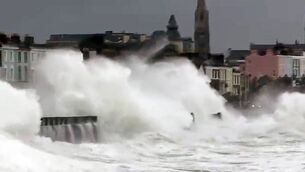Schools and hospital face disruption as unions escalate action
Schools and hospitals are expected to be worst hit as union chiefs escalate a fight to reverse pay cuts with a series of work stoppages.
The Irish Congress of Trade Unions has pledged to ratchet up industrial action in the civil and public service through tactical strikes.













